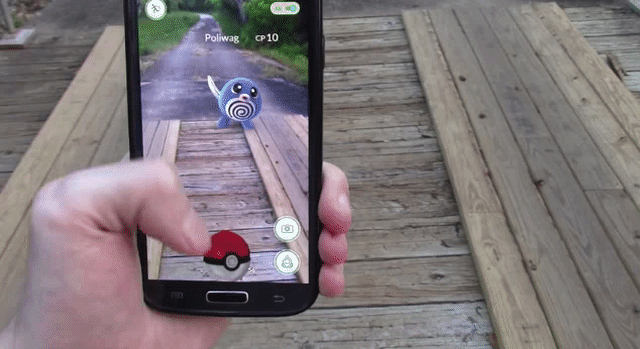Maybe Nick Bilton has been dining with Peter Thiel too much, but he feels, as the prickly PayPal cofounder does, that technology is in a creative torpor. In his latest Vanity Fair “Hive” piece, the journalist looks at the Pokémon Go pandemonium, which has mobilized more people than Turkey’s coup attempt, as proof Americans are waiting for the roar of the next cool tool and settling for Augmented Reality Meowiths.
Perhaps. But that may be a confusion of real progress and our desire for gadgets, which are often used more as toys than tools. Sometimes those two dovetail, as in the case of the iPhone, but actual advances don’t necessarily arrive on schedule nor fit in a pocket–it’s not just about consumerism. True game-changers aren’t uniformly just fun and games.
An excerpt:
Sure, the game is fun. But it’s not necessarily indicative of a larger trend in augmented reality, a technology that goes back over a decade. Rather, it’s symptomatic of a much larger problem in the tech industry: that there is no major new innovation on the horizon. We have quietly slipped into an era of technological stagnation, where the next several years will bring few meaningful changes to the industry. The reason for this, and the larger problem that investors should be worried about, is that today’s technological advances have hit a ceiling, or are pretty close to one. It’s not that the visionaries are out of ideas, or that they are unaware of what consumers want next. Instead, it’s that the limitations of physics are preventing today’s tech companies from releasing things that today’s consumers are pining for. The ideas behind driverless cars are here, the technology not so much. The same is true for virtual reality, where you have to be plugged into a wall to really experience it’s power. Or for wearable gadgets, or Siri, which are too lethargic and inaccurate to be true products—yet.
Even the technology we readily use today isn’t in need of an upgrade. Our smartphone cameras are sharp enough. Our iPads are fast enough. Our laptops are thin enough. While the electronics industry has been trying to cram 3-D television and curved televisions and not-very-smart “smart televisions” down our throats for the past several years, most people have ignored these advances. The 50-plus-inch TV we paid $500 for at Best Buy is thin enough and crisp enough. There is nothing that TV-makers can offer that will entice us to run out to buy a new one. There is no new social-media platform on the horizon, either. According to a study last month, people in more than than half a dozen countries are spending less time on most social sites. We don’t need another Twitter. We don’t want another Facebook. Snapchat is fun enough.
This is exactly why everyone is obsessing over a game on their smartphones. Consumers are yearning for something else; something new and exciting. But it doesn’t exist.•
Tags: Nick Bilton

